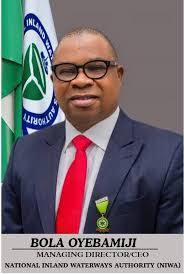ALL means of transportation, like air, rail, land, and water, are prone to intermittent accidents and loss of lives and property. But the increasing rate of mishaps on our waterways has become too regular and, therefore, calls for decisive safety measures to check the situation.
Since mid-2025, several accidents have occurred on various Nigerian waterways, and hundreds of lives have been lost in one accident or the other.
For instance, in May 2025, 27 people lost their lives in a boat accident at Gbajibo community in the Kaiama Local Government Area of Kwara State. It was the second such accident in less than 10 months. Also, in early September 2025, 41 persons died in separate accidents in Njuwa Lake in Yola, Adamawa State, Mokwa of Niger State, and in Gurin, Fufore area of Adamawa State.
While 30 people died in the tragic boat accident in the Gausawa community, Borgu Local Government Area of Niger State, recently,26 traders died in a water mishap while traveling from the Ibaji Local Government Area of Kogi State to Ilushi market in Edo State on Tuesday, September 30, 2025. These are a few of the cases that have jolted the riverine communities this year.
Industry watchers have attributed the rate of accidents to collisions with tree stumps or other boats, capsizing or sinking due to overload, rickety vessels, night operations, and engine failure, while deaths (fatalities) occurred due to the inability of passengers to abide by regulations like wearing life jackets, which increases chances of survival on water.
This development is disheartening, disturbing, and a challenge to the waterways transport managers. It calls for safety standards, practices, and effective monitoring and community enlightenment.
Sparked by the development, the National Inland Waterways Authority (NIWA) recently proposed to deploy additional water marshals to complement the existing number of rangers managing situations on the rivers. By the arrangement, the authority will beef up the existing 350 water marshals with an addition of 450, making it 800 to curb the incessant boat mishaps.
Briefing journalists in Abuja,the Managing Director of NIWA, Mr. Bola Oyebamiji, disclosed that the recruitment and deployment of the new marshals will be achieved in December. He explained that the deployment will strengthen safety and regulations on the waterways, curb incessant boat accidents, ensure enforcement of the use of life jackets on board, and monitor unauthorized loading points where enforcement is circumvented.
This initiative, though it may not be an ultimate solution to the increasing cases of water accidents, will make a positive impact, and, if implemented as planned, help prevent some avoidable loss of lives due to human errors resulting in collisions and sinking on the waters.
No doubt, the increased cases of boat mishaps and fatalities in the past few months have put the responsibility of NIWA under serious scrutiny.By the Act of the National Assembly, CAP 47, Laws of the Federation of Nigeria (LFN), 2004 (Decree No. 13 of 1997), NIWA has a primary responsibility of improving and developing Nigeria’s inland waterways for safe navigation.
If this responsibility is carried out, river transportation has the advantage of minimal energy cost, is appropriate and convenient to transport bulky and heavy commodities, and can easily convey more persons on board. It also enables residents of riverine communities the opportunities to travel to an urban city for social and economic needs.
With these in mind, it behooves the relevant authority to sustain activities in maritime transportation and make it safe, convenient, and rewarding. Therefore, the initiative to recruit an additional 450 marshals, even though to us it is a paltry number, is commendable to guide transporters and passengers on safety measures.
While we welcome the initiative, it is our view that competent Nigerians are recruited in a fair and transparent process, trained, and equipped with the necessary gadgets to guarantee effective performance.
Besides, NIWA should stop boat overloading, train boat operators and other relevant industry personnel on human and equipment management. Finally, the NIWA marshals must work in synergy with the Nigeria Meteorological Agency (NiMET) and other agencies to get up-to-date information and relay the same to waterway


